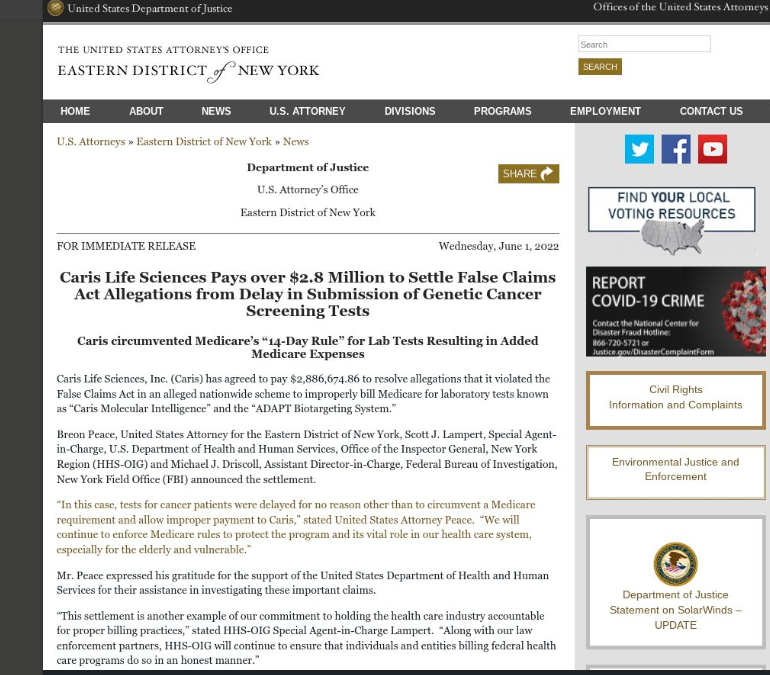“Caris Life Sciences, Inc. (Caris) has agreed to pay $2,886,674.86 to resolve allegations that it violated the False Claims Act in an alleged nationwide scheme to improperly bill Medicare for laboratory tests”*
The U.S. Department of Health and Human Services (HHS), Office of Inspector General (OIG) and the Federal Bureau of Investigations (FBI) have been investigating and charged Caris Life Sciences for Medicare Billing Fraud.
“In this case, tests for cancer patients were delayed for no reason other than to circumvent a Medicare requirement and allow improper payment to Caris,” stated United States Attorney Peace. “We will continue to enforce Medicare rules to protect the program and its vital role in our health care system, especially for the elderly and vulnerable.” *
The Caris laboratory tests are used to test cancer patients with late stage or aggressive tumor types (such as lung cancer). These test results help determine the therapy options for patients and identify potential clinical trial opportunities. Time is of the essence in the care of these patients. Delaying the processing of this testing is a disservice to patients and the oncologists that treat them. Knowingly violating Medicare laws comes with penalties. Thus, the over $2.8 million penalty that Caris Life Sciences must pay to resolve their violation of the False Claims Act.
“Caris Life Sciences intentionally deceived the public health care system to benefit from unlawful payments. Medicare fraud, in all its many forms, puts public health at risk and hands taxpayers the bill. We will continue to work with our partners to ensure programs like Medicare remain free from fraudulent activity,” stated Assistant Director-in-Charge Driscoll. *
“The civil settlement includes the partial resolution of one action and final resolution of another brought under the qui tam or whistleblower provisions of the False Claims Act against Caris.”* It appears as if Caris Life Sciences will still have more actions taken against them if also found guilty – or if they choose to settle out of court – for the other actions not listed above.
It is important that genetic and genomic labs are able to find and properly classify any known alterations. It is also important that these labs are following Medicare policy, as Medicare is the largest payer for testing at most of these labs. Without Medicare reimbursement, the likelihood of ever being profitable is unlikely.
The entire settlement can be found here.

Recent Comments